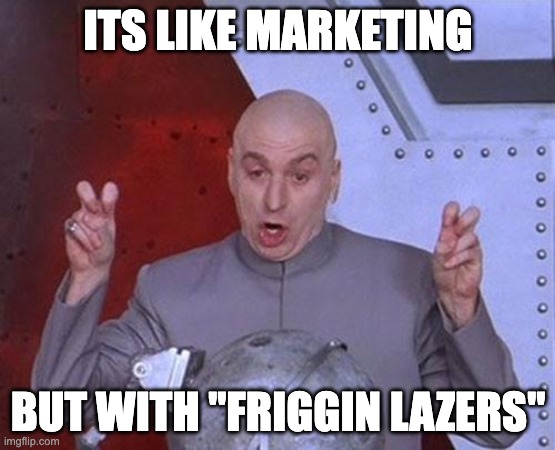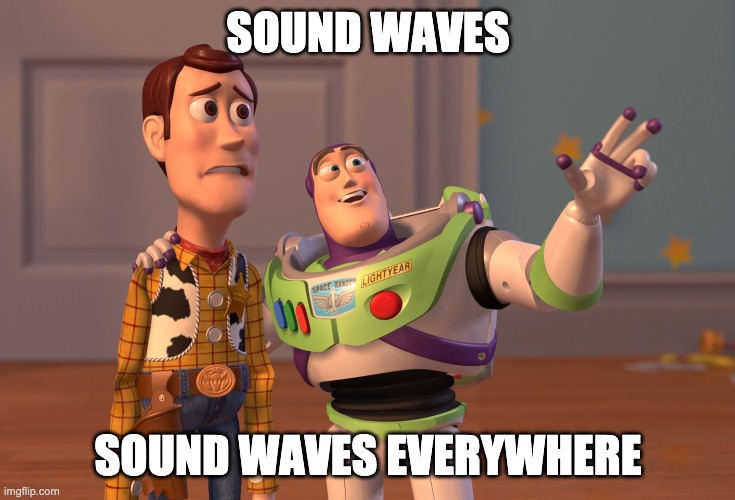The Cost Effectiveness of Podcast Marketing vs. Other Strategies
Did you know the average podcast listener spends over 5 hours each day listening to podcasts? That means listeners spend almost a quarter of their day with a podcast in their ear.
Marketers have the opportunity to reach the ears of potential customers with podcast marketing, but is it profitable? Let’s deep dive into podcasting and how audio marketing fits in.
Listen to this content in audio format.
Why Podcast Marketing Is Profitable
Thanks to a large pool of loyal listeners, podcast advertisements are now considered an essential step in your marketing campaign. There are a variety of reasons why podcast advertisements are deemed profitable.
Podcast Advertisements Are Engaging
Over half of listeners find podcast ads engaging. When advertisements are related to the topic of the podcast, listeners are more likely to respond positively. With demographic targeting, engagement is higher than advertisements tailored toward a broader audience.
Additionally, podcasts are often hands-off. This means many people opt to listen to their favorite podcasts in their car or during their morning jog. Since listeners are preoccupied with their tasks, they’re less likely to skip through ads.
Profitability Is Data-Proven
Data-driven insights back the revenue potential of podcast marketing. Podcast ad revenue trends indicate a predicted increase of around $1 billion by 2021. Additionally, 63% of listeners say they bought a promoted product mentioned in a podcast.
You Can Target Your Preferred Audience
Podcasts typically produce content that is extremely niche. This allows you to advertise to your target audience more closely than ever.
By creating a podcast directly related to your product and service, advertising is both seamless and intriguing to the listeners.
Listeners Are Loyal
Podcast listeners tend to stick around for specific reasons beyond the topic of discussion. The host, podcast guests, and cadence of the conversations are all factors that encourage listener loyalty.
Loyalty is essential when it comes to product marketing. Engaging the same audience with the same product or service advertisement strengthens your marketing campaign.

How Podcast Marketing Compares to Other Strategies
It’s relatively easy to learn how to podcast, making it more approachable than other forms of media marketing. TV ads, for example, are pricey and don’t guarantee target market reach. Targeting loyal listeners increases brand awareness as well as the likelihood of a positive response.
Digital marketing on social media platforms perform well, but this strategy lacks an avenue for compelling content. Podcasts keep listeners coming back with interesting discussions, stories, and interviews. While this type of content is possible on social media websites, podcasts are a better platform.
Video marketing on websites like YouTube is also great for building audience loyalty. However, people consume audio marketing in more situations than video marketing.
Your audience can listen to a podcast in the car or while working more smoothly than watching a video. People are busy and will often opt for audio over video when needed.
49% of podcast listening happens at home while 22% happens in the car; making it a unique form of advertising!
Getting Started With Your Podcast Marketing Campaign
Before you utilize the profitability of podcast marketing, it’s vital to plan out your niche and your intended audience.
Find Your Audience
Your target audience is a specific group of people within a particular demographic. This specific group of people is the audience who is most likely to buy your product and service and listen to content related to it.
If you haven’t figured out your target market yet, research your customers and analyze your competition. Your largest customer base for your product or service should be the targeted audience.
Finding your target audience will help you figure out the perfect type of podcast to create.
Find Your Niche
After pinpointing your target market, finding your podcast’s niche is much simpler. Your podcast should directly relate to your product or service, as well as appeal to your target audience.
Next, figure out how you want to present your content. Will you create a platform for compelling stories or focus on interviews and discussions?
The route you take depends on your strategy and competition research. If your competition is mainly discussion-based, you can either take the same route or create an entirely new approach.
Ultimately, you want to differentiate yourself enough from your competitors to give your audience a reason to listen to you. Check out the reviews on competing podcasts to scope out what your target audience wants.
It’s up to you! You can always change the dynamic of your podcast based on feedback and engagement.
Record Your First Podcast
Planning is half the battle. To record a podcast, you’ll need professional equipment and a studio set-up.
Don’t have one? No problem.
You can book a fully-equipped podcast studio with podcasting equipment and services. Audio recording, editing, and mixing are taken care of for you.
Plug your product within your podcast as seamlessly as possible. To measure your return-on-investment, include a promo code or personalized URL that your audience can use to purchase your product or service. This helps you track which customers are your listeners.
Gain a Loyal Audience
Recording your podcast is half the battle. After getting your podcast up-and-running, it’s time to share it with the world.
Cross-channel advertising and leveraging other media platforms help with podcast promotion. Keep enticing your target market and catering content towards your loyal subscribers. Engaging with your community helps build and maintain listener loyalty.

The Next Steps
Podcast marketing is your chance to explore advertising in a growing industry. By showing off your brand’s personality and gaining loyal listeners, your marketing strategy will naturally blossom.
Ready to begin your podcast marketing campaign? Book a time with us to reserve a studio or consultation.
